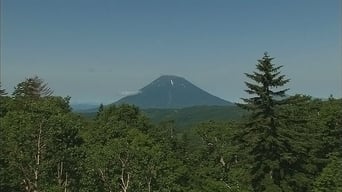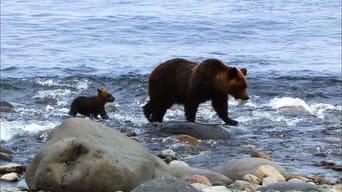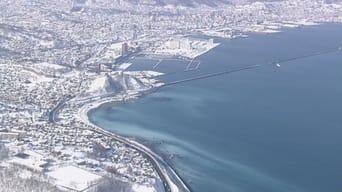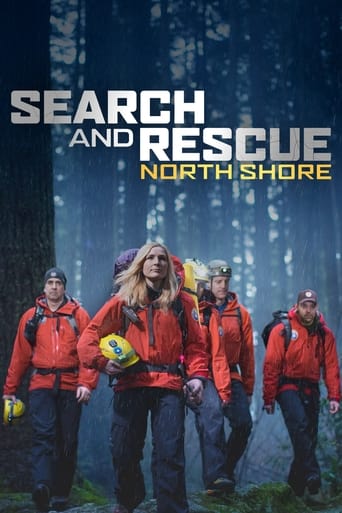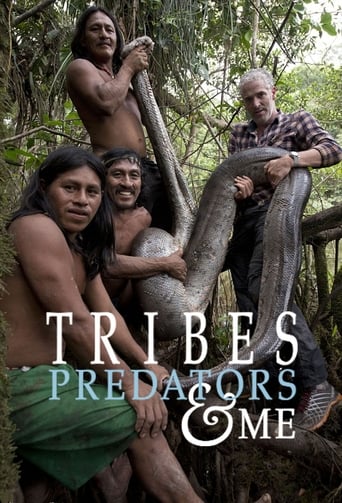Wild Hokkaido! Season 1

Be immersed in nature's beauty. Discover Hokkaido at its wildest and best as our presenter guides you through its amazing experiences.
Watch NowWith 30 Day Free Trial!
Wild Hokkaido!
2017 / NR
Be immersed in nature's beauty. Discover Hokkaido at its wildest and best as our presenter guides you through its amazing experiences.
Watch Trailer
Wild Hokkaido! Season 1 Full Episode Guide
This episode's stage is the Niseko area, which is a 2- to 3-hour drive from New Chitose Airport. With winter approaching, we'll fully enjoy the magnificent nature of the Niseko mountain range, beautifully colored with autumn foliage. Our host will take a walk along Shinsennuma Marsh with its many widespread lakes and marshes, accompanied by a guide, to behold its magical scenery. We have also prepared rare and detailed footage of the life of flora and fauna in the Niseko mountain range where the seasons quickly transition from summer into winter, as well as the rough nature unique to the volcanic area.
This episode features Hokkaido's largest city, its capital Sapporo, with a population of two million. The host of this program will climb Mt. Moiwa (531m), a destination easily accessible from Sapporo's city center by streetcar. The breathtaking beauty of autumn in Sapporo is on full display as Mt. Moiwa's verdant foliage changes its color. We will also enjoy the view over the city from the summit which has also been selected as one of Japan's top three night views. The program also features rare footage of salmon swimming upstream in Sapporo's Toyohira River, as well as creatures that dwell in the city’s forests.
The stage today is the coast of Shiretoko, a registered World Natural Heritage Site. A commanding landscape created by volcanic rocks spreads across the coast of Shiretoko. This unique ecosystem created by the symbiosis of land and sea is home to a wide variety of animals such as the Brown bear. Our host Charlotte Kate Fox participates in a tour on a small boat where she witnesses Brown bears hunting for Pink salmon swimming upstream. In addition, we will show you the "forest of dense kelp" where diverse creatures live, as well as the rare footage of the spawning of Pink salmon.
Our stage today is Mt. Yotei, located in the Niseko area. It is also known as “Ezo Fuji” due to its beautiful figure. The mountain, which can be circled in about an hour by car, has many viewpoints making it a popular tourist destination. Our host explores the forest near the foot of Mt. Yotei. There, he encounters a giant Japanese Oak tree over 100 years old while heading to a beautiful lake that was created by water that gathered in an old crater. We will also show you the enormous shadow of Mt. Yotei reflected in the sea of clouds, as well as rare footage of alpine plants.
This episode's stage is the Shiretoko Peninsula, a registered World Natural Heritage Site. Shiretoko is well known for having one of the highest Brown bear population densities in the world. Our show’s host, Charlotte Kate Fox will explore the forest where the Brown bears actually live with a guide. They will come across many traces of the Brown bears from a hole that they used for hibernating to a fresh set of large footprints. In addition, we will show you rare footage that displays the ecology of a Brown bear parent and its cub over the course of 6 months.
Today's stage is Mt. Furanodake, located in the Tokachi mountain range within the greater Taisetsu mountain range. Mt. Furanodake is known as the treasure box of alpine plants since it has around 100 species, approximately 1/5th of the entire number of alpine plant species in Japan. Our show's host will try trekking through the Tokachi mountain range with a mountain guide to experience the dynamic mountains that stand over 2000 meters tall. In addition, we will see rare footage of a flower known as the "Queen of Alpine Plants", as well as the Northern Pika, which crossed over from a different continent during the ice age.
Today's stage is the forest of Higashi-Taisetsu, located close to the center of Hokkaido. The rich forest of Higashi-Taisetsu has a mixture of coniferous and broadleaf trees as well as over 150 types of birds and 300 different species of plants. Our show’s navigator, Charlotte Kate Fox, will experience the lush forest of Higashi-Taisetsu with a thrilling activity where she will fly through the trees. In addition, we have rare footages that have captured the ecology of the creatures that live in this forest.
This episode’s stage is the Taisetsu mountain range in central Hokkaido, with peaks that reach heights of 2000 meters. The Taisetsu mountain range has been appointed the largest national park in Japan, with an area of approximately 226,000 hectares. The two ropeways on the mountain range make the climb effortless. Our show’s navigator, Charlotte Kate Fox, will explore the flower fields located halfway up Mt.Asahidake, the tallest mountain in the Taisetsu mountain range. We have also prepared rare footage that sheds light on the ecology of the beautiful flowers in the mountain range.
This episode's stage is Shimukappu, located near the center of Hokkaido and a 90-minute train ride away from Sapporo. Forests cover 90% of Shimukappu's landscape. Mesmerizing fog covers the lush faces of the mountains from summer to autumn. Our host will travel up the mountain to behold the awe-inspiring beauty of the scenery, and then go deeper into the forest on a mountain bike. We have also prepared rare footage of the creatures that live in the foggy forests.
Our stage today has the largest surface area of its kind in Japan, the Kushiro Wetlands. Our host will canoe down a river that flows through that wetland. Due to the quietness of canoes, it is ideal for observing wild animals. We encounter sika deers and white-tailed eagles, whose wingspan can reach up to 2 meters. In addition, we will witness the rare footage of a red-crowned crane couple warming up their eggs, as well as Siberian salamanders laying their eggs that can only be found in this area in Japan. Please enjoy the great nature of the vast Kushiro Wetlands.
In this episode, we will visit the town that is home to numerous world-renowned ski resorts, Niseko. We will introduce a side of Niseko's vast nature that can only be experienced during its short summer period. Our host will raft down the Shiribetsu River, which has stronger currents during this season due to the snowmelt. Niseko is also well known for the wide variety of vibrant flowers that blossom near the mountaintops. How do these flowers survive the long winters of Niseko? Our precious footage will uncover the many strategies for survival that these plants possess.
Our stage today is Mt. Usu, a registered UNESCO Global Geopark. Our host will visit the Volcano Science Museum and explore the crater that was formed by the eruption of 2000. Steam rises from the crater of Mt. Usu even to this day and gives visitors a sense of the power that the volcano that erupted 4 times in the 20th century possesses. In addition, NHK has been documenting the changes to the surrounding nature of Mt. Usu since the eruption. These precious footages display the destructive power of volcanoes, as well as nature’s incredible ability to restore itself.
In this episode, our stage is a popular tourist destination that is also registered as a "UNESCO Global Geopark", Lake Toya. The caldera lake that was created 110,000 years ago creates a myriad of breathtaking views. In the lake and surrounding rivers, the spawning of Masu salmon can also be seen, and they, along with many other fish, develop healthily thanks to the nutrients provided by the volcanic ash. In this program, we will witness the rare footage of wild animals that capture their ecology, and our host Charlotte Kate Fox will also go on a hike around the surrounding area.
In this episode, our stage is the city that is home to the New Chitose airport and is known as the Sky's gateway to Hokkaido, Chitose. The Chitose River, which flows through the city, is well known for its clear streams as well as the salmon that swim upstream. Thanks to the abundance of nature along the stream, the river is also home to a wide variety of birds. In this program, we will witness rare footage of these birds that capture their ecology, and our host Charlotte Kate Fox will also visit a bird-watching café on the outskirts of the city to capture the wild birds on camera.
In this episode, Charlotte Kate Fox visits Otaru, which is a 45-minute drive from Sapporo. The retro canal is a very popular tourist attraction. Otaru was a prospering town in the past and fished over a million tons of herring annually. For a period, the herring population had declined, but successful spawning has been observed in recent years. We will show you the impressive footage of the herring spawning later in the show. Charlotte will also try skishoe trekking for the first time on a mountain with an amazing ocean view! Join her, as she gets close to nature while enjoying the scenery of a snowy forest.
In this episode, we are visiting Furano in central Hokkaido. The cultivated flat lands have been used to create lavish lavender fields, a popular attraction among foreign tourists. Torinuma is one of the few remaining areas in Furano where the original landscape remains intact. Many wild birds gather at the lake because of the abundance of fresh spring water. Charlotte Kate Fox has begun bird-watching! She has spotted a duck floating upside down reaching for algae as well as a woodpecker searching for insects in trees.
In this episode, we are visiting Hakodate in southern Hokkaido, which is gathering increased attention since the bullet train started its operation. Right next to the city stands the home to a breathtaking rich nature, Mt. Hakodate. Actress Charlotte Kate Fox is going up to the peak of Mt. Hakodate via ropeway. From where you can see Mt. Hakodate from a distance, you can enjoy the beautiful spring scenery of southern Hokkaido by riding a Dosanko, the native horse of Hokkaido. We'll also reveal the rare footage of Mt. Hakodate going through changes.
Our new program "Wild Hokkaido!" offers tourist information highlighting the wonderful nature of Hokkaido. In this episode, actress Charlotte Kate Fox visits the Kushiro area of eastern Hokkaido. After taking in the magnificent landscape of Kushiro Marsh, which is Japan's largest wetland, Fox encounters the Red-crowned crane, a bird that is symbolic of the area. These cranes stay with their partner for the entirety of their lives. Fox was moved by how the cranes synchronize their cries and take off together. She even had the opportunity to witness their mating ritual. The program also includes rare footage of the Red-crowned cranes, documenting their ecology in detail.
Niseko has become synonymous with hitting the slopes in Hokkaido. The fine snow lures skiers from Japan and abroad. Tune in to take a ride on the lift and revel in breathtaking views of Mt. Yotei. This episode also features rare footage of wild birds and fish related to char. Join our reporter for some easy trekking amid the great nature of Niseko.
Free Trial Channels
Seasons









